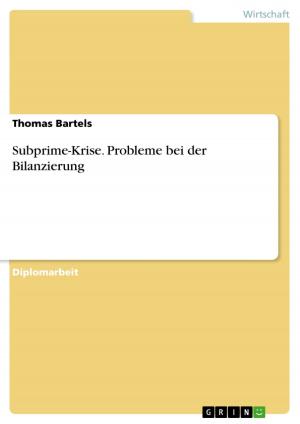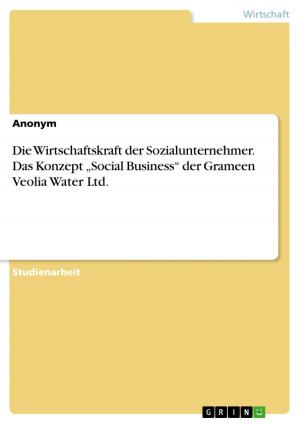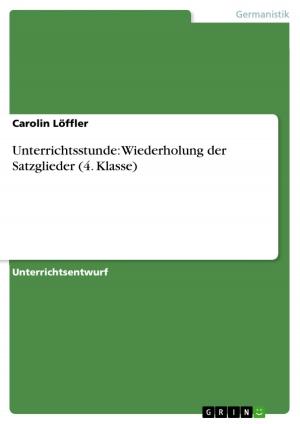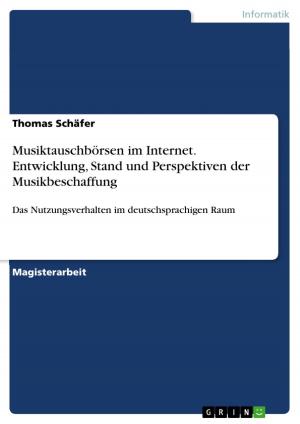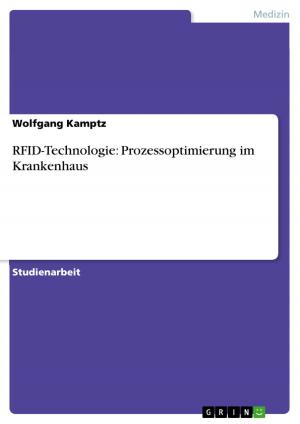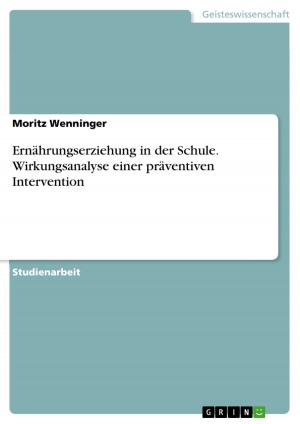German Loanwords in English. An Assessment of Germanisms Such As 'Sauerkraut, Pretzel and Strudel'
Nonfiction, Entertainment, Drama, Anthologies| Author: | Julia Graßmann | ISBN: | 9783668208377 |
| Publisher: | GRIN Verlag | Publication: | May 2, 2016 |
| Imprint: | GRIN Verlag | Language: | English |
| Author: | Julia Graßmann |
| ISBN: | 9783668208377 |
| Publisher: | GRIN Verlag |
| Publication: | May 2, 2016 |
| Imprint: | GRIN Verlag |
| Language: | English |
Seminar paper from the year 2015 in the subject English Language and Literature Studies - Linguistics, grade: 1,3, University of Rostock (Institut für Anglistik/Amerikanistik), language: English, abstract: English is a language which contains many words borrowed from languages all over the world - German counted among them. When thinking of German borrowings in English, one might come up with a few obvious ones, as for example sauerkraut, wanderlust and rucksack or terminology from the Second World War, like blitzkrieg. This essay sets out to show in which fields and to which time the German language particularly contributed to the diversity of the English lexis. Furthermore, it examines how German words became integrated into the English language and thus became Germanisms. Especially, I am looking at American English and show that many Germanisms had been adopted into American English due to cultural contact with German immigrants in the United States in the 19th century. To achieve this, I have structured my paper into two main chapters, each with two sub-sections. In the chapter on 'Lexical Borrowing' I provide an overview of important terminology, serving as a framework for my further investigations. Additionally, I show why languages tend to borrow concepts from others. In the chapter on 'Germanisms', I have an explicit look at German words which were borrowed into English, particularly into American English, while analysing newspaper articles from The New York Times. The conclusion contains a summary and an evaluation of the inspected Germanisms.
Seminar paper from the year 2015 in the subject English Language and Literature Studies - Linguistics, grade: 1,3, University of Rostock (Institut für Anglistik/Amerikanistik), language: English, abstract: English is a language which contains many words borrowed from languages all over the world - German counted among them. When thinking of German borrowings in English, one might come up with a few obvious ones, as for example sauerkraut, wanderlust and rucksack or terminology from the Second World War, like blitzkrieg. This essay sets out to show in which fields and to which time the German language particularly contributed to the diversity of the English lexis. Furthermore, it examines how German words became integrated into the English language and thus became Germanisms. Especially, I am looking at American English and show that many Germanisms had been adopted into American English due to cultural contact with German immigrants in the United States in the 19th century. To achieve this, I have structured my paper into two main chapters, each with two sub-sections. In the chapter on 'Lexical Borrowing' I provide an overview of important terminology, serving as a framework for my further investigations. Additionally, I show why languages tend to borrow concepts from others. In the chapter on 'Germanisms', I have an explicit look at German words which were borrowed into English, particularly into American English, while analysing newspaper articles from The New York Times. The conclusion contains a summary and an evaluation of the inspected Germanisms.





